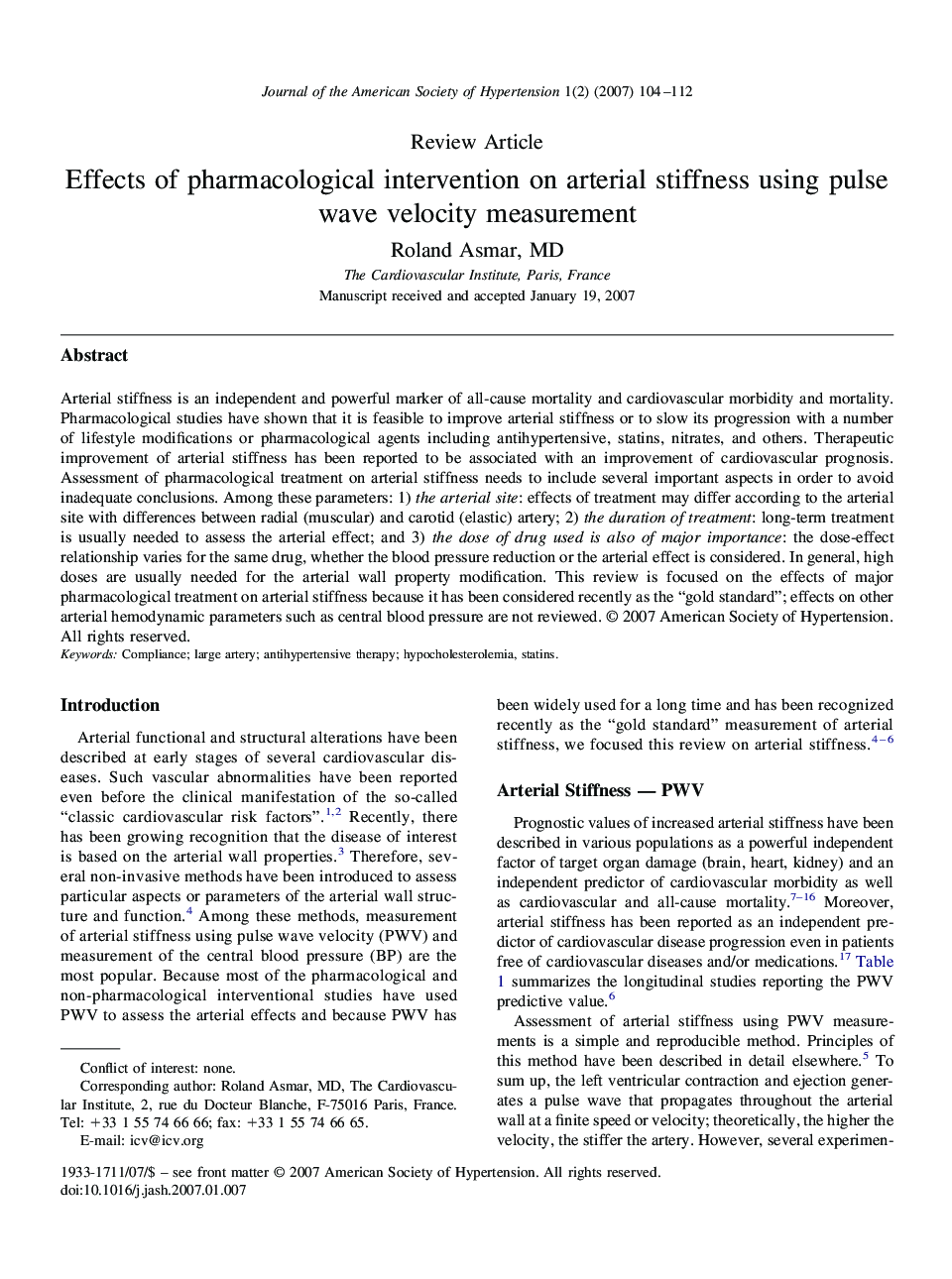| Article ID | Journal | Published Year | Pages | File Type |
|---|---|---|---|---|
| 2957381 | Journal of the American Society of Hypertension | 2007 | 9 Pages |
Arterial stiffness is an independent and powerful marker of all-cause mortality and cardiovascular morbidity and mortality. Pharmacological studies have shown that it is feasible to improve arterial stiffness or to slow its progression with a number of lifestyle modifications or pharmacological agents including antihypertensive, statins, nitrates, and others. Therapeutic improvement of arterial stiffness has been reported to be associated with an improvement of cardiovascular prognosis. Assessment of pharmacological treatment on arterial stiffness needs to include several important aspects in order to avoid inadequate conclusions. Among these parameters: 1) the arterial site: effects of treatment may differ according to the arterial site with differences between radial (muscular) and carotid (elastic) artery; 2) the duration of treatment: long-term treatment is usually needed to assess the arterial effect; and 3) the dose of drug used is also of major importance: the dose-effect relationship varies for the same drug, whether the blood pressure reduction or the arterial effect is considered. In general, high doses are usually needed for the arterial wall property modification. This review is focused on the effects of major pharmacological treatment on arterial stiffness because it has been considered recently as the “gold standard”; effects on other arterial hemodynamic parameters such as central blood pressure are not reviewed.
